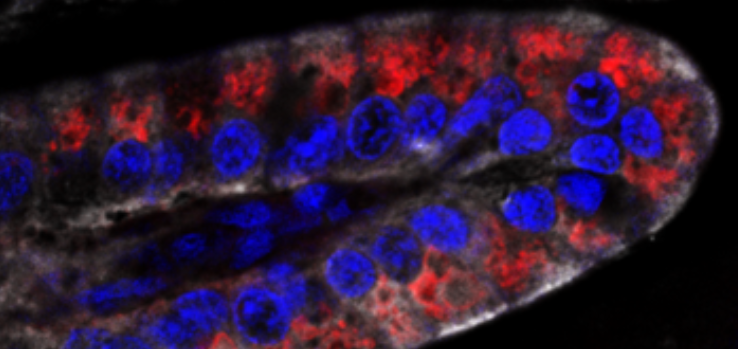
Laura Akintche – Belmonte Lab – CBM Severo Ochoa – Madrid
My name is Laura Akintche, and I am one of two MSCA SurfEx network students, part of the Belmonte lab in Madrid, Spain. Although I grew up in Germany, I completed all my university education in the United Kingdom. After graduating from a Bachelor´s degree in Molecular Biology at the University of Aberdeen, I moved to London to pursue a Master of Research in Translational Cancer Medicine at KCL. While working on my Master´s project in the Rosenblatt lab, I became fascinated by investigating very fundamental principles of cell biology in the context of disease. Luckily, I was able to stay an extra year in the lab, working as a Research Assistant to finish up my work on the project. From living in a country known for its rainy weather, I moved on to one of Europe´s sunniest capitals: Madrid.
In the Belmonte lab, I am following my interest in cell biology by studying a special type of cells found in the intestine of newborn mammals called “neonatal enterocytes” (NEs). These NEs are capable of absorbing entire complex molecules like lipids and sugars from the mother´s milk and breaking them down inside their large digestive compartments. This is what makes these neonatal cells unique, as adult enterocytes can only absorb smaller, pre-digested nutrients.
Differences in the metabolism of NEs and adult enterocytes
It is at weaning, when our diet changes from maternal milk to solid foods, that neonatal enterocytes disappear from the intestine and are replaced by adult cells. Previous studies have found the time from birth until the end of weaning to be crucial for healthy maturation of the immune system and its relationship with the gut microbiota. Disruptions during this time, can lead to life-long susceptibility to diseases such as IBD and colorectal cancer. What role NEs play in shaping this intricate interplay, remains unclear.
To investigate this, I am deliberately disrupting NE metabolism and describing how this affects the state of immune cells. I am also checking for changes in microbiome composition and metabolites – what species of bacteria are found in the gut, and what do they secrete?

Cellular barrier of a neonatal intestine, magnified to see NEs with giant digestive compartments in red, and DNA in blue
